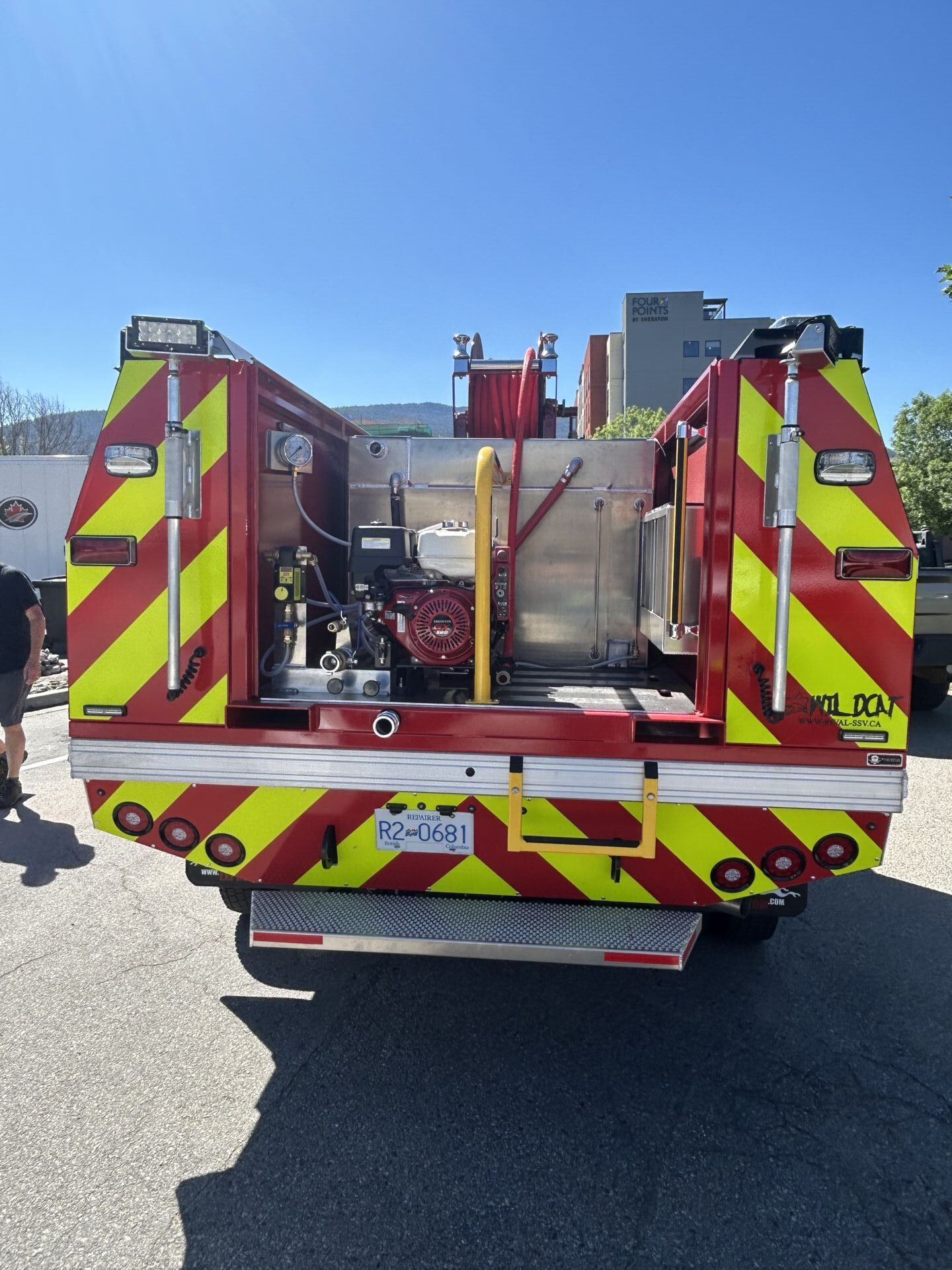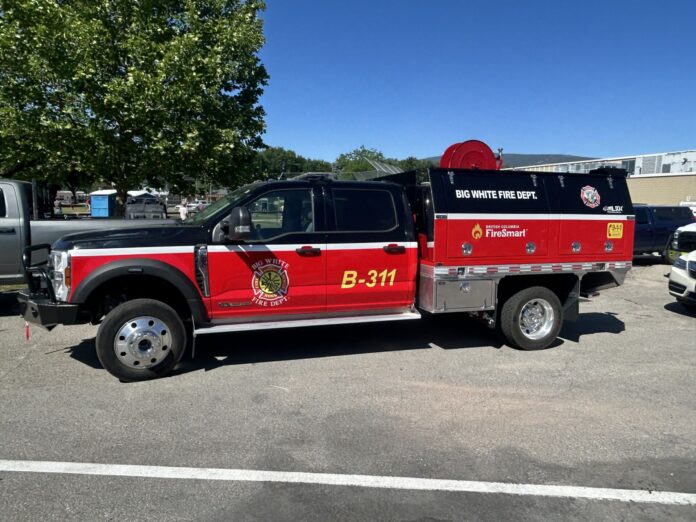The Regional District of Kootenay Boundary has signed off on the purchase of three new wildland fire engines at a total cost of $800,000, despite the misgivings of a couple of directors who felt that two engines should suffice.
Kootenay Boundary Regional Fire Rescue Chief Dan Derby explained the trucks are the same kind that BC Wildfire uses for its initial attack crews. One will replace an existing 2006 vehicle in Trail, while the others will be stationed in Rossland and Fruitvale.
The fire department’s bigger trucks are designed to stay on pavement or well-maintained roads, but these vehicles can access much remoter areas, and come with equipment tailored to putting out wildfires, Derby said.
He said the new engines will also be better suited to first-responder calls in the winter. He added that although BC Wildfire has interagency agreements with local fire departments, if a wildfire breaks out within Kootenay Boundary’s coverage area, they are expected to put it out.
While the procurement process hasn’t been completed, Derby expects the trucks will come from a Vancouver Island supplier, and will be delivered in April 2026, a much quicker turnaround than the typical two-to-four-year wait for larger engines, tenders, and ladder trucks.
Derby said they have enough room at the halls to house the new engines, which are expected to be paid for through short-term borrowing.
However, some RDKB directors questioned the need to buy three vehicles. Warfield director Frank Marino and Beaver Valley rural director Ali Grieve both wondered if the region could get by with two.
“My view is we always need to look at is there a more efficient and effective way?” Marino said in an interview afterward. “I’m just posing those questions as part of my responsibility of being on the board.”
Marino said while he’s not opposed to acquiring these types of engines, he expects upcoming budget discussions to look at “where we can save or not increase as much. That will be one of my themes.”
Derby said it was “challenging” to hear the directors’ concerns now, when the purchase has been in the works for over a year. But director Ali Grieve replied that “Times are changing. We face a different world.”
Fruitvale director Bill Wenman was among those who spoke in favour of buying all three trucks. He said given climate change and increasing urban interface fires, it makes sense to have more engines that can put out small wildfires fast, and fewer vehicles would mean slower responses.
The vote, which was limited to Greater Trail’s directors, passed with Marino and Grieve opposed.

Be the first to know! Don’t miss out on breaking news and daily updates in your area. Sign up to MyKootenayNow News Alerts.






